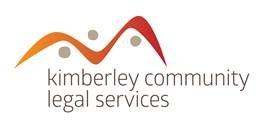Systemic Change
As part of its practice, KCLS tackles systemic problems affecting our clients. We work towards change by amplifying local voices and identifying policies that disadvantage our clients and the wider community.
KCLS draws upon all facets of our services to tackle systemic problems in legal policy that affect our clients.
Advocacy Reports
US Without Abuse Campaign
Breaking news - US Campaign launch Monday 23 December 2024
The US campaign is a proud collaboration between Kimberley Community Legal Services and the Marninwarntikura Women’s Resource Centre, two organisations deeply rooted in the Kimberley community. Together, we are the US behind US, united in our mission to create a brighter, stronger, and safer Kimberley for everyone.
This initiative is about shifting the narrative from one of despair to one of strength and recognising the vital role the community plays in making this change happen. It’s a message of hope, unity, and action: that together, we can be the change we need. To support this, we have created resources to inspire and empower individuals and families across the Kimberley. For those experiencing abuse or affected by it, we are here to help and support you on your journey toward safety and healing. Because US is better without abuse.
Today marks the launch of the ‘US Without Abuse’ Campaign, led by Kimberley Community Legal Services in partnership with Marninwarntikura Women’s Resource Centre. This initiative represents a unified commitment to debunk the normalisation of violence and foster a safer, more supportive community for all.
You can watch the 45 second ad and share with your friends and family on our Facebook page: https://www.facebook.com/share/v/1aHzAi3Yys/
Over the coming months the campaign will run ads on television, radio, social media and throughout the community. I encourage you all to visit the campaign website and share the resources with your networks: www.uswithoutabuse.com
Next year KCLS will work towards bringing the campaign to our Remote Aboriginal Communities across the region and provide Community Legal Education on Domestic Violence and Elder Abuse.
US is better without abuse
The campaign, produced by Wunan Media, incorporates powerful storytelling tailored to resonate deeply with local audiences.
By amplifying the voices and experiences of Kimberley people, the campaign seeks to challenge harmful behaviours, promote accountability, and empower individuals to stand against abuse.
Spanning online platforms, television, radio, and community spaces, the initiative is designed to create widespread awareness and drive behavioural change.
Public Housing "Stuck in the Heat" Report
The extreme heat in the Kimberley is felt more by public housing tenants who face many barriers to coping with heat. Tenants struggle to keep temperatures down in poor quality housing, are under financial pressure as they try to afford air conditioners and power bills and they feel the impacts of heat stress on daily health and wellbeing.
Elder Abuse “No More Humbug” Report
The “No More Humbug” research report identified the extent of Financial Elder Abuse in the Kimberley. An outcome of the report has been the development of resources that aim to reduce Aboriginal Financial Elder Abuse in the Kimberley and other Aboriginal Communities in remote regions.
Based on extensive interviews across the Kimberley, this work highlights the causes and prevalence of elder financial abuse, and what can be done to change things for our families and communities.
-
Submission outlining challenges for Kimberley residents in the current rental crisis.
-
Submission outlining challenges for Kimberley residents in the current rental crisis.
-
Submission focusing on the difficulty our clients have obtaining and enforcing Family Violence Restraining Orders in remote communities.
-
Submission to the Treasury regarding regulation of Buy Now Pay Later products which are adding to cycles of financial disadvantage.
-
Submission raising issues on the compounding factors that can increase the complexity of tenancy issues faced by victim-survivors within the Kimberley region.
Historic submissions can be found here.



